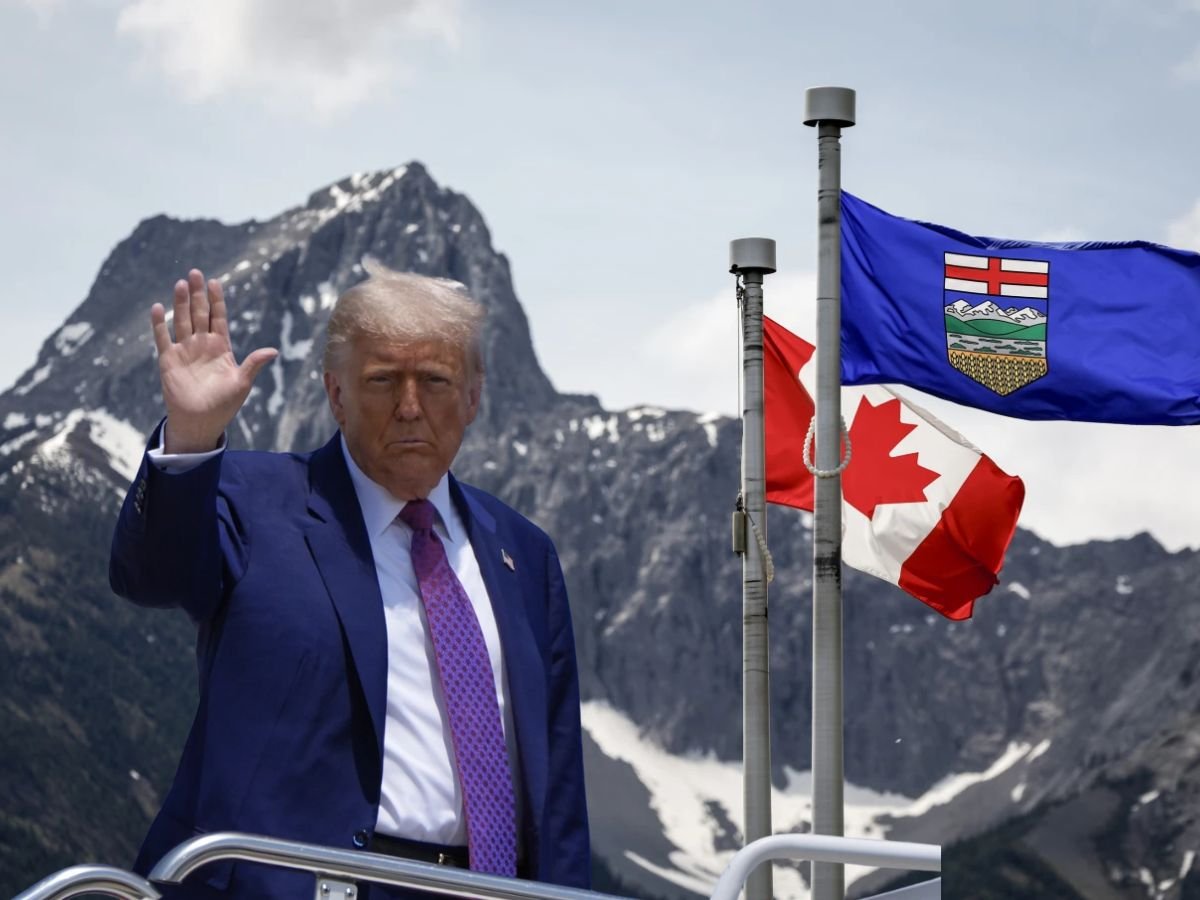US President Donald Trump has long operated on the belief that he can intimidate allies into compliance: from floating ideas about making Canada the 51st US State and the US acquiring Greenland to questioning American obligations under NATO, Trump has consistently employed unpredictability as a diplomatic tool, according to a report published by The Associated Press.
Is Trump’s Rhetoric Scaring Allies Into Submission?
Many world leaders now view Trump’s threats as largely bluster. “Many leaders still seem intimidated by Trump, but increasingly they are catching on to his pattern of bullying,” Jeremy Shapiro, research director at the European Council on Foreign Relations, told The Associated Press.
According to Shapiro’s analysis, in 22 public threats of military action made by Trump, the US has followed through with force only twice.
Global Pushback: Allies Begin to Speak Out
In the lead-up to the G7 summit, several leaders have sent clear messages that they will not bow to Trump’s agenda, as reported by the AP.
-
French President Emmanuel Macron criticised Trump’s approach of trying to dominate allies, warning against forcing countries to choose between the US and China. “We want to cooperate, but we do not want to be instructed on a daily basis what is allowed,” Macron said, according to AP.
-
Canadian Prime Minister Mark Carney declared that “the United States is beginning to monetise its hegemony,” a shift he said undermines decades of cooperation. “Today, that predominance is a thing of the past,” Carney reportedly said, in a seemingly pointed rebuke of a US president by a Canadian leader.
-
Japanese Prime Minister Shigeru Ishiba voiced concern about Trump’s trade policies. Ahead of the summit, he called Trump to “congratulate his birthday” and confirm a meeting—a sign of diplomacy, but also of growing independence from Washington, as reported by the AP.
A Fractured G7 Behind Closed Doors?
The G7 summit in Kananaskis, Canada, is shaping up to be more fragmented than in previous years, the report said. A senior Canadian official told the AP that there will be no joint communiqué, a typical feature of such summits, due to challenges getting Trump to align with other leaders.
Instead, each leader will release individual statements on their positions.
Trump’s Allies Using Diplomacy to Manage Complexities
Despite the tension, some leaders are using personal diplomacy to manage the complexities of dealing with the Trump administration:
-
UK Prime Minister Keir Starmer has attempted to align with Trump on NATO spending while maintaining firm support for Ukraine. He brought a state visit invitation from King Charles III, reportedly delighting Trump.
-
German Chancellor Friedrich Merz had a smooth bilateral meeting with Trump, but Berlin remains cautious about how that relationship functions in a group setting, reports suggest.
-
Italian Prime Minister Giorgia Meloni, once seen as a natural Trump ally, is reportedly navigating her own tightrope: maintaining strong support for Ukraine while trying to bridge European interests with Trump’s worldview.
Strategic Silence or Calculated Distance?
While most G7 leaders are avoiding direct public clashes with Trump, analysts cited by the agency say this does not reflect alignment. Mark Sobel, US chair of the Official Monetary and Financial Institutions Forum, told the publication that Trump’s “trade policies, backing for right-wing European movements, seeming preference for dealing with authoritarians and many of his other actions are alienating our G7 allies.”
He warned that, “behind the curtains, and notwithstanding whatever theatre, the Kananaskis summit will highlight a more fragmented G7 and an adrift global economy.”
ALSO READ: How President Trump Is Celebrating His 79th Birthday: Tanks, Helicopters And A Lavish Army Parade



